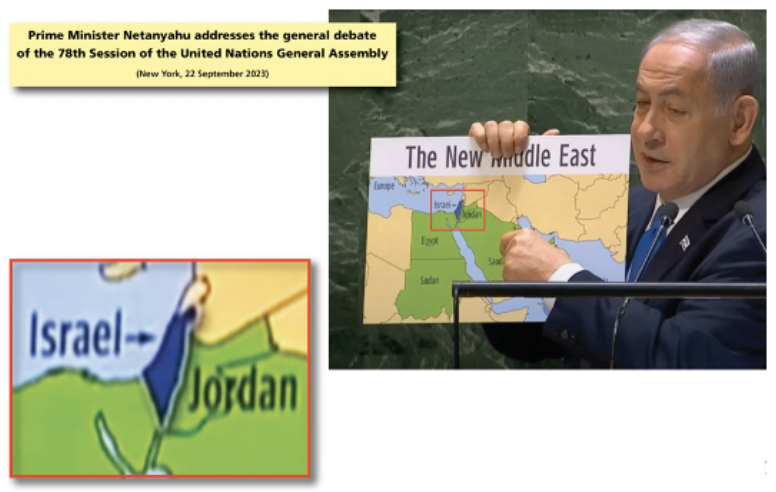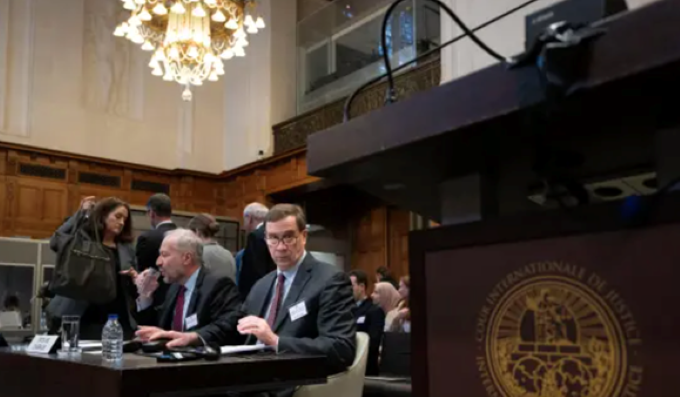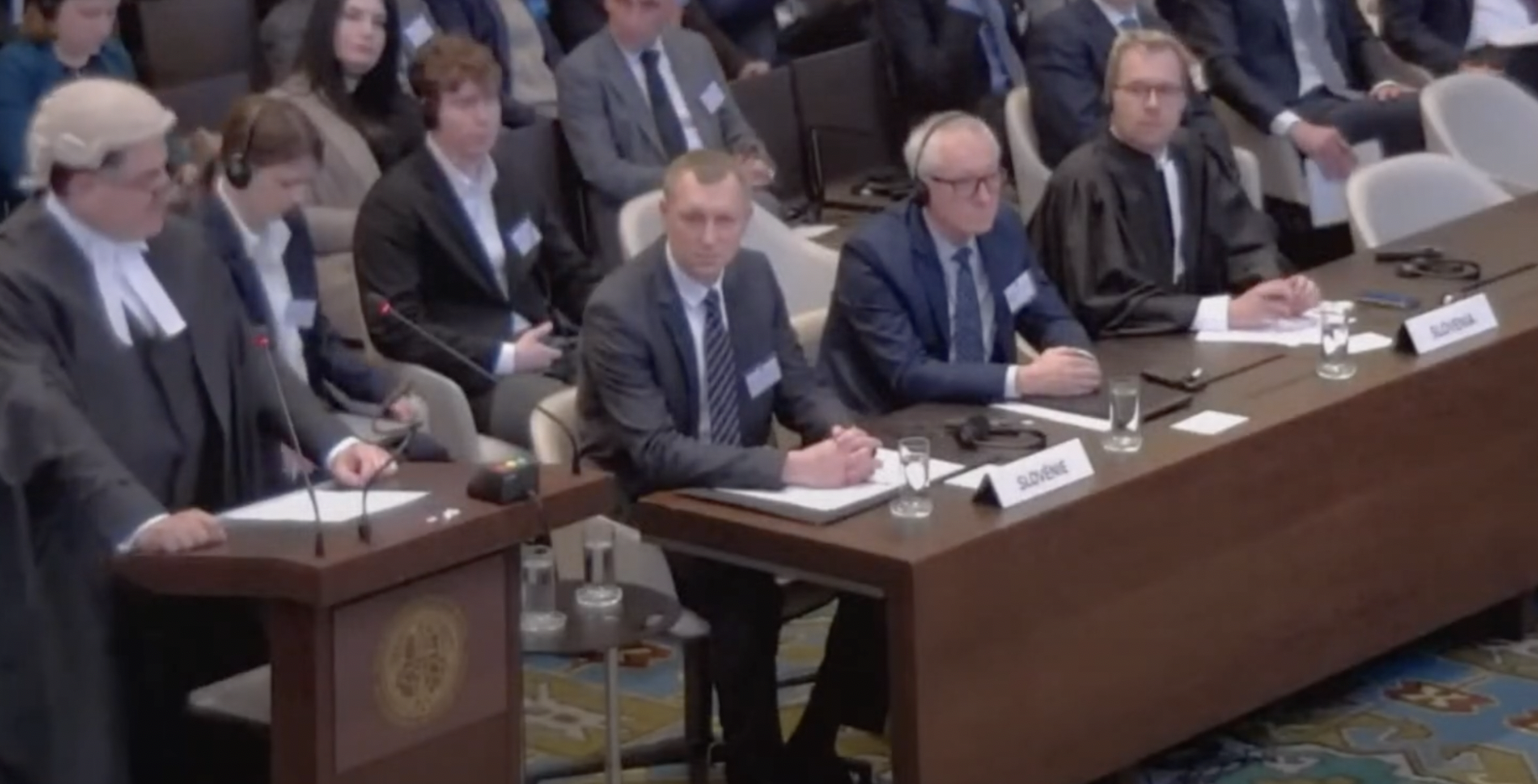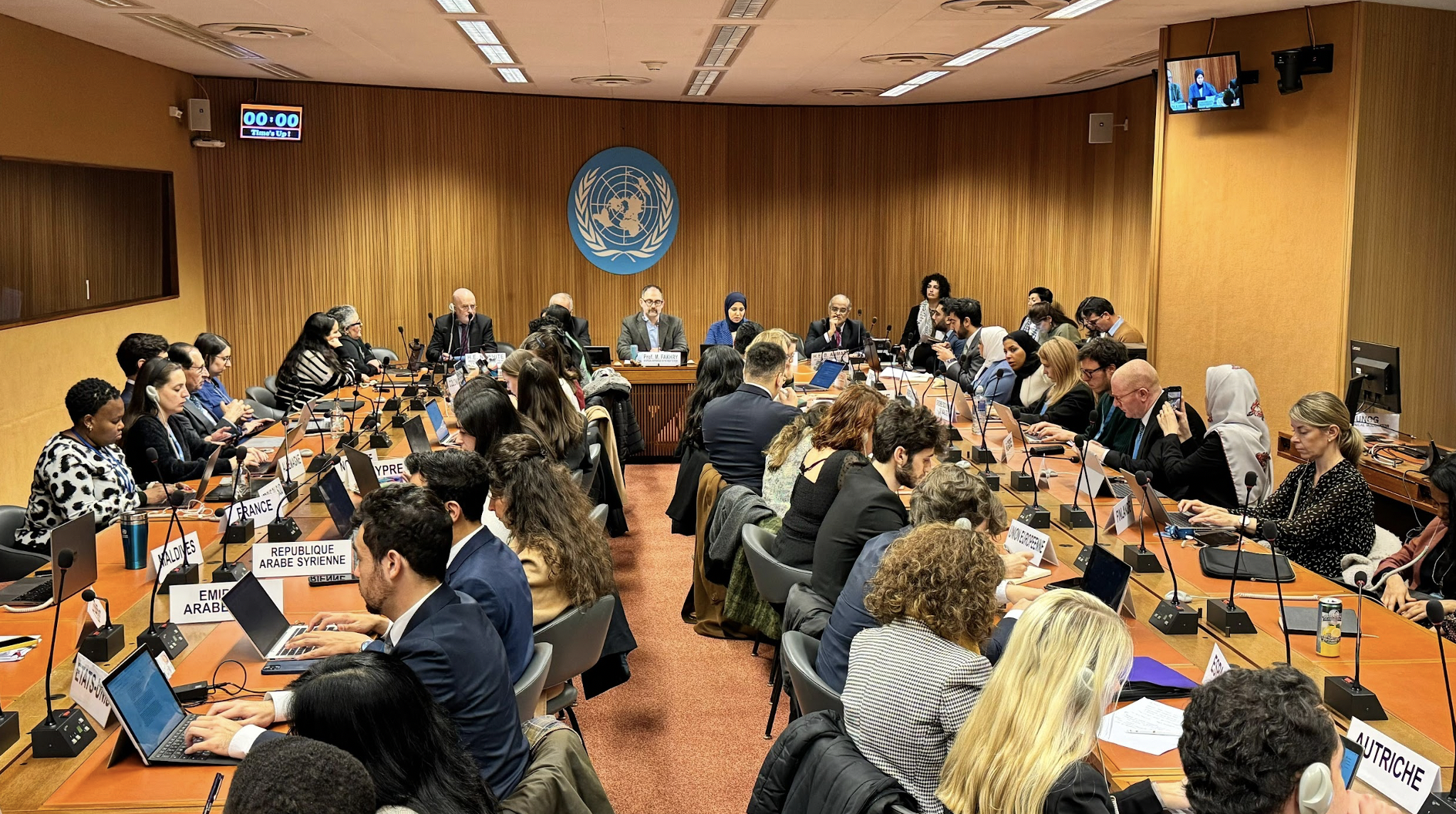Day 6: the International Court of Justice (ICJ) Last Day and Conclusion to Hold Public Hearings in the Advisory Proceedings - State of Palestine
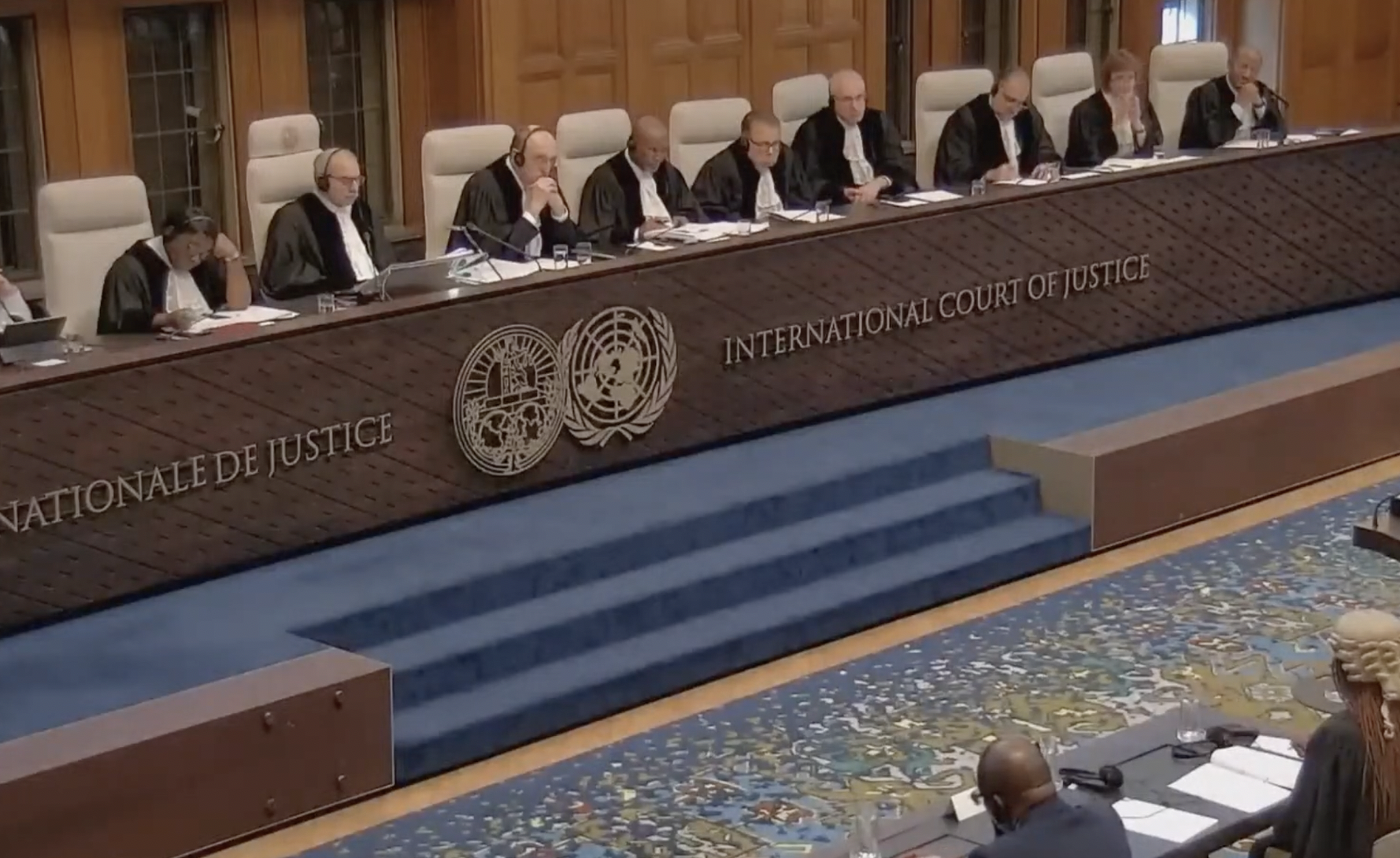
On 26 February 2024, the court hold the last hearing in the Advisory Proceedings with delegations from different nations and organisations including: Türkiye, Zambia, League of Arab States, Organization of Islamic Cooperation, African Union, Spain, Fiji, and the Maldives regarding issues concerning the occupied Palestinian territory. The International Court of Justice (ICJ, or the Court), inter alia, grappled with the following questions:
"(a) What are the legal consequences arising from the ongoing violation by Israel of the right of the Palestinian people to self-determination, from its prolonged occupation, settlement and annexation of the Palestinian territory occupied since 1967, including measures aimed at altering the demographic composition, character and status of the Holy City of Jerusalem, and from its adoption of related discriminatory legislation and measures?” and “(b) How do the policies and practices of Israel referred to in paragraph 18 (a) above affect the legal status of the occupation, and what are the legal consequences that arise for all States and the United Nations from this status?".
On 26 February 2024, some organisations such as the League of Arab States, highlighted the significance of the ongoing proceedings. Mr Abdel Hakim El Rifai, expressed optimism about their potential contribution to upholding international law principles. Central to their concerns was the inalienable right of the Palestinian people to self-determination, amidst the last remaining oppressive, expansionist, apartheid, settler-colonial occupation in the twenty-first century. Despite enduring acts of genocide, ethnic cleansing, and other atrocities, Palestinians remain committed in their pursuit of justice, Mr Hakim El Rifai stated. The League condemned the politicisation of accountability, stressing the need for Israel to be held accountable under universal rules of international law, “the insistence on placing Israel above the law, through the politicisation of accountability and adopting double standards in the application of justice is a direct threat to international peace and stability,” they stated. Additionally, they highlighted the Arab Peace Initiative of 2002 as a significant effort towards peace, urging Israel to adhere to its obligations. The League insisted that the prolonged occupation is an affront to international justice and called for the Court's confirmation of its illegality, “only through the rule of law can genuine peace and coexistence be achieved in the region”.
The League of Arab States highlighted the legal foundation of Palestinian self-determination, rooted in the "sacred trust" obligations of Article 22 of the League Covenant. Despite attempts to bypass this right, including the incorporation of the Balfour Declaration commitment by the League Council, such actions were legally void. The League asserts that the Mandate for Palestine provided no legal basis for a specifically Jewish State or for the United Kingdom's failure to implement Palestinian self-determination, focusing on the ongoing struggle for justice.
Following World War II, a right to self-determination for colonial peoples emerged in international law, complementing the pre-existing Covenant right for Palestinians. The League views the 1947 proposal to partition Palestine as contrary to this right, with the Arab rejection affirming the legal status quo. The proclamation of the State of Israel in 1948, accompanied by the forced displacement of Palestinians, constitutes a grave violation of Palestinian self-determination. Despite this, Israel's statehood was recognized, perpetuating the ongoing Nakba and the denial of Palestinian rights, they stated.
The African Union's Legal Counsel also delineated the internationally wrongful acts attributable to Israel, emphasising the illegality of its occupation. The essence of their argument focused on the absence of Israeli title over the West Bank, Gaza, and East Jerusalem, traced through a concise historical narrative that discredited any purported claim to sovereignty. Mr Mohamed Helal asserted, "At no point in this process did Israel acquire title over these territories," dismissing notions of a sovereign vacuum or indeterminate legal status as unfounded.”
Furthermore, the African Union's position rested on three pivotal arguments, dissected by their Legal Counsel. Firstly, Israel's occupation violated the fundamental prohibition on acquiring territory by force, substantiated by undeniable evidence of annexationist intentions. Secondly, the occupation infringed upon the Palestinians' right to self-determination, a universally recognized entitlement enshrined in international law, “Israel must end its unlawful occupation of all the Palestinian territories as rapidly as possible, in order to enable the Palestinian people to exercise their fundamental right of self-determination.” Lastly, the cumulative effect of Israel's policies and practices formed a compendium of breaches that rendered the occupation unlawful, transcending mere violations of belligerent occupation law. Through meticulous legal reasoning, the African Union unequivocally maintained that Israel's occupation of Palestinian territories was both unlawful and untenable.
Conclusion of the Public Hearings
Following a series of comprehensive hearings, the International Court of Justice (ICJ) entered a crucial phase of deliberation on the contentious issue of Israel's occupation of Palestinian territories. Throughout the hearings, a diverse array of voices, including those of the State of Palestine, 49 Member States of the United Nations, and three international organisations, presented oral statements. This extensive participation underscored the global significance and complexity of the matter at hand.
The procedural history leading up to the hearings reflected the gravity of the situation and the international community's concerted efforts to seek legal clarity. Triggered by a resolution adopted by the United Nations General Assembly in December 2022, the request for an advisory opinion from the ICJ encapsulated two crucial questions concerning the legality and consequences of Israel's actions in the occupied Palestinian territories. The meticulous procedural steps undertaken, including notifications to concerned parties and the fixed time-limits for written submissions, underscored the Court's commitment to a rigorous and impartial examination of the matter.
As the Court commenced its deliberations, we await for the forthcoming advisory opinion, which would be delivered at a public sitting, the date of which would be announced in due course. This opinion holds the potential to shape international discourse and influence diplomatic initiatives aimed at resolving one of the most enduring conflicts in modern history. With the weight of legal arguments and international law principles at its disposal, the ICJ's advisory opinion promises to provide critical guidance on the path towards a just and sustainable resolution of the Israeli-Palestinian conflict.
Geneva International Centre for Justice (GICJ) acknowledges the importance of the ICJ's public hearings in the advisory proceedings regarding the Occupied Palestinian Territory. These hearings represent a crucial step towards addressing the ongoing violations of international law in the OPT. GICJ urges the ICJ to carefully deliberate the evidence presented, underscoring the need for a clear and unequivocal determination regarding the unlawfulness of Israel's actions and the legal obligations of all states to uphold international law. As advocates for justice and accountability, GICJ calls upon the international community to support the ICJ's efforts in seeking a just and lasting resolution to the Palestine question that respects the rights and dignity of the Palestinian people.
Read more from GICJ:




